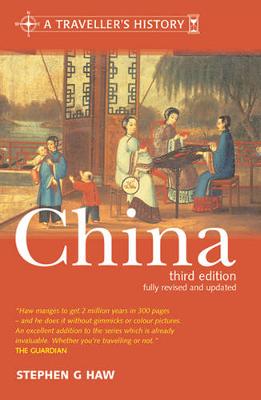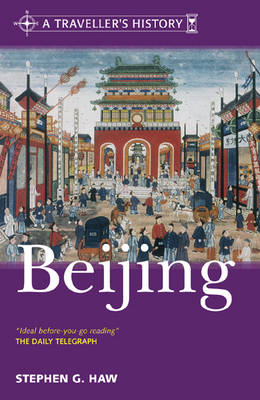Traveller's History S.
2 total works
Stephen G.Haw begins with the prehistoric civilisations of 4000 years ago, and from there to the centuries of China's silk trade. Some of the most significant inventions of the modern world were invented in China - paper, gunpowder and the magnetic compass. The author describes the glories of the Tang and Song dynasties which saw the creation of the great Chinese cities to the period of its decline and the efforts of Europe to subdue this giant land. It covers the tumult of the Chinese Revolution and the dramatic changes in political policies since the 1970s right up to the present day. It also looks at the handover of Hong Kong, the continuing difficulties of Taiwan and how China is emerging as the world's largest market. 'The author manages to get 2 million years into 300 pages - and he does it without gimmicks or colour pictures. An excellent addition to a series which is already invaluable. Whether you are travelling or not.' The Guardian 'In order to make the most of a visit to China such portable pocket-size guides as this are most useful.' The China Quarterly
Beijing is a great city, the gateway to China, the centre of a great and rising nation. It has changed dramatically during the last 25 years and taken on a vibrant modern aspect, but it still retains its historical character. The Olympics in 2008 are a sign that Beijing is taking its place among the prime cities of the world, a centre of political and economic power with a rich cultural legacy. Beijing has been China's capital for over 750 years. It was rebuilt by Khubilai Khan in the 13th century and its layout still follows his plans, it saw out the Mongols, the Ming and Qing dynasties in the Imperial Place until the Revolution of 1911. There followed 4 decades of chaos and war, until 1949, when Mao Zedong stood on the Gate of Heavenly Peace in the heart of Beijing to proclaim the foundation of the People's Republic of China. It will also have practical information and be illustrated with maps on exploring the city and a Chronology of Events. See list of Special Topics.

